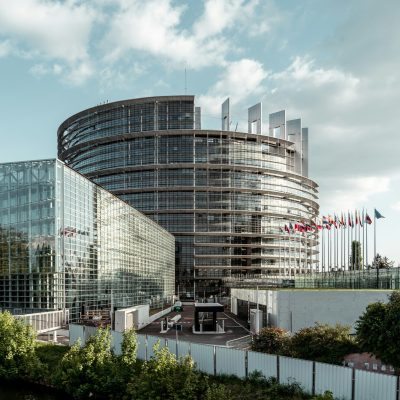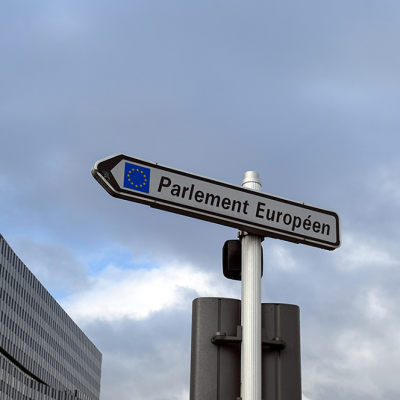Tic toc, with 4 months to go to the European elections, the key debates are taking shape…
Newsletter February 2024

The next European elections will take place between the 6 and 9 June, and while the heads of the lists are beginning to be assigned, events seem to have accelerated in recent weeks, bringing to the fore the debates that are likely to punctuate the weeks and months ahead. The agricultural crisis is a case in point, highly symptomatic of the risk that the European Union will once again become an easy and obvious scapegoat for all those who want to score points in these forthcoming elections. Criticism is so easy and the issues so complex that facts are often distorted and exploited, and the explanation of reality is hardly compatible with the length of a message on X (e.g. Twitter).
In this world of confrontation, Europe’s raison d’être and values are being undermined and all issues are easily exploited by those who have long been vilifying the European project. Europe is said to be ultra-liberal (when in fact half of the world’s social spending is on our continent), the trade agreements are said to penalise both the agricultural sector and the fight against climate change (when in fact Europeans were the first to introduce and negotiate environmental clauses in their trade agreements), and the Green Deal could only handicap the competitiveness of European businesses and ruin European farmers (where the lead taken by European businesses can become a real comparative advantage and the EU renewable energy policy a real source of resilience). The end of the month would be at odds with the end of the world, and inward-looking attitudes, including national ones, and old reflexes would be the obvious solutions to all our problems.
And yet, the only attempt to leave the European Union, Brexit, has not been the most conclusive of experiences (only 12% of British people are still convinced that their choice was the right one), but it also appears that crisis after crisis, Europeans have been able to find common responses that are often unexpected and always European. It is a pity, however, that European integration can only be built in times of crisis, even though we now have enough experience to know that most crises also stem from a lack of Europe (we should rember it more often). Take the recent agricultural crisis, during which we discovered, among other things, that France was being overzealous in transposing European agricultural standards… Let’s not forget that it was the renationalisation of the Common Agricultural Policy that made this possible. Let’s continue with the energy crisis that resulted from the Russian invasion of Ukraine in 2022. Energy inflation would have been more moderate if Europe had been less dependent on its Russian imports, but also if the targets set by the Member States years ago for the deployment of renewable energies had been met.
Admittedly, not everything is perfect, far from it. The resources are lacking to support Europeans in the face of the immense challenges they face, and rigour is once again being invited to the negotiating table. The method must also be adapted to prevent a single troublemaker under influence from undermining months of work and negotiations, and to ensure that European responses are closer to the people on the ground. With 4 months to go before the elections, the key debates are becoming clearer, and Europeans will only be convincing if they are able to reassure people by explaining that the policies pursued over the last 5 years are aimed above all at protecting Europeans citizens, but also by accepting a more complex reality and realistically apprehending the pitfalls and shortcomings as well as the road still to be travelled.
Sylvie Matelly
Director of the Jacques Delors Institute




